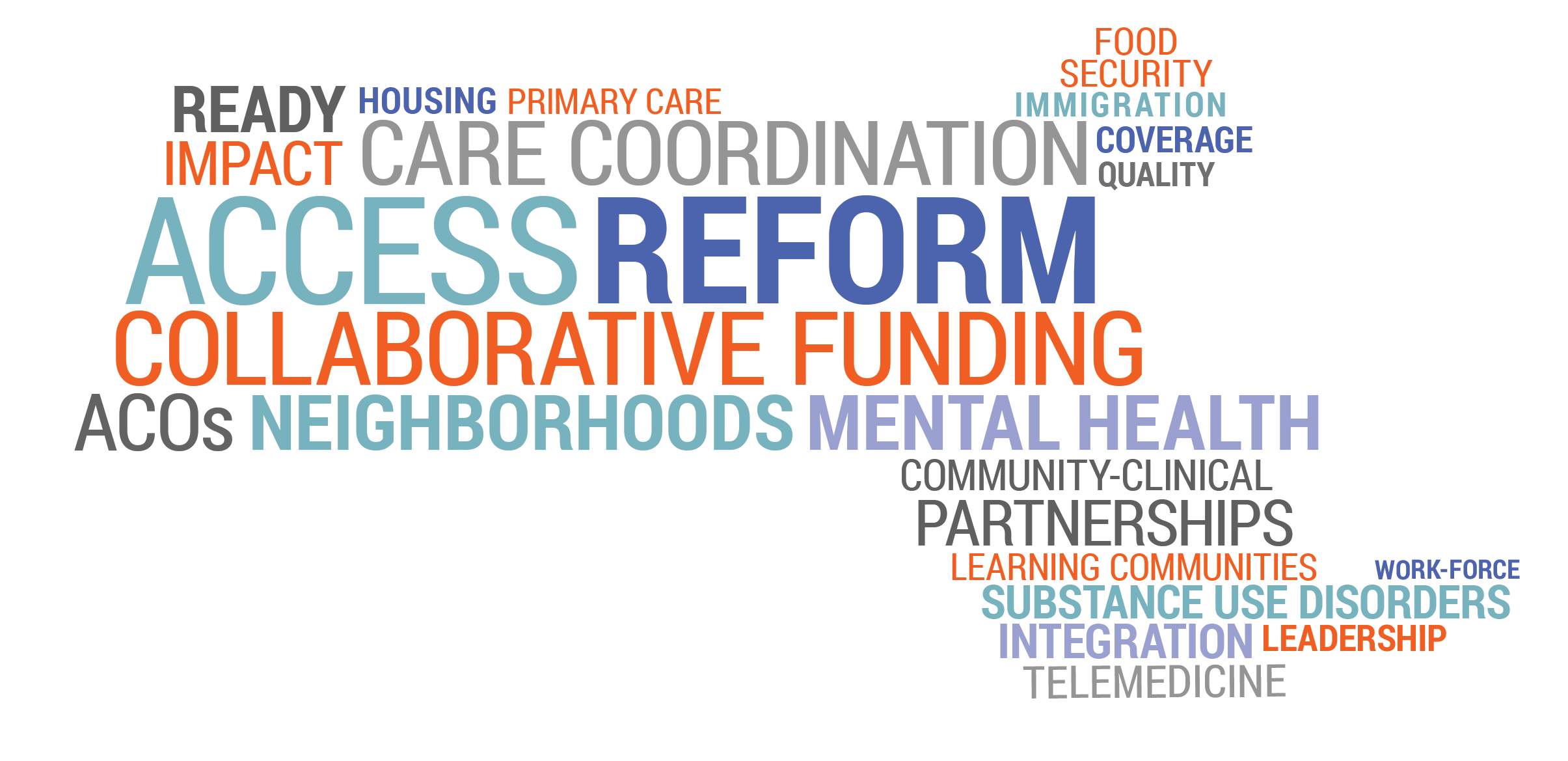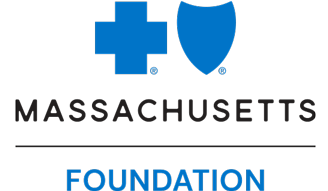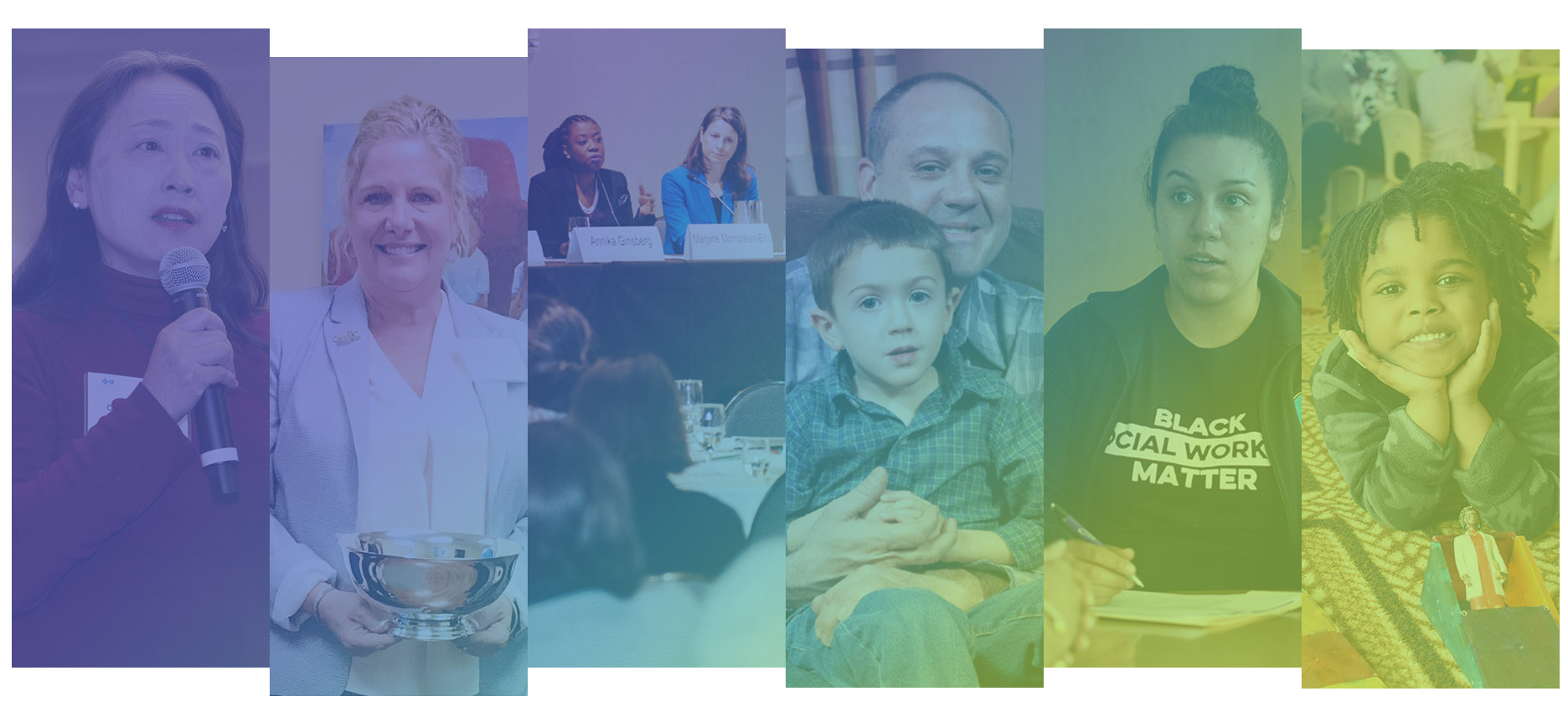
Introduction
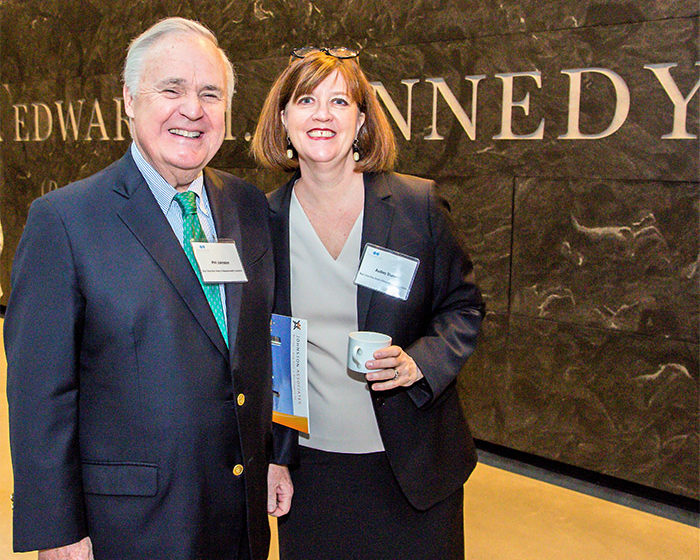
Letter from Audrey Shelto, President
We continue to inform and elevate discussions on the key health care issue of access to coverage that the Foundation has long been known for. In 2018 we also deepened our focus on access to critical health care and community services.
Addressing a behavioral health care system that is not fully meeting the needs of those challenged by mental illness and/or substance use disorders was a consistent theme of our work this past year. Health care’s continued expansion into addressing social determinants of health also led to opportunities for the Foundation to gather data, produce non-partisan analyses, and stimulate conversations about the meaning of partnership among clinical and community stakeholders.
Through an ongoing series of columns published in the MetroWest Daily News and on GateHouse Media sites across Massachusetts in 2018, the Foundation spoke directly to the public about health care access and affordability. We also developed materials to help a broad range of providers and the public better understand the shift in the MassHealth program to care provided by Accountable Care Organizations.
We are so fortunate to have had the wisdom and guidance of Phil Johnston as our Board Chair since our founding. Phil’s steady hand has kept us pointed to our true north—access to health care for low-income and vulnerable people in the Commonwealth—while always encouraging us to expand our thinking about how to get there. We thank Phil for his dedicated service and commitment to the Foundation and to the health care needs of people across Massachusetts.
We also look forward to welcoming Board Member Manny Lopes to the role of Chair. As the CEO of East Boston Neighborhood Health Center, one of the nation’s largest community health centers, Manny shares Phil’s and my belief in the importance of access to health care for every person in the Commonwealth.

Audrey Shelto
President
Message from Phil Johnston, Board Chair (2001-2018)
Eighteen years ago, our Foundation was endowed by Blue Cross Blue Shield of Massachusetts as a modern day expression of the company’s commitment to the community.
While it was not a smooth or straight path, we did create the roadmap that led our state to be the first in the nation to provide near universal health care.
That accomplishment–on the part of many people and leaders in the Commonwealth–was momentous. Our work, however, was far from done. We know that coverage alone does not equal access so we continue to support efforts to help individuals obtain and stay engaged in care. Mental health and substance use disorders continue to present a major challenge, as far too many individuals and families struggle to get the assistance they need from a system that still treats physical and behavioral health differently.
And we know that where someone lives, and how much or little they earn, has tremendous impact on their health and that of their family. Our Foundation maintains a commitment to supporting access to services that address the social determinants of health and to elevating the voice of residents in creating effective policy solutions.
My term as board chair concludes—after 18 years in the role–with tremendous pride in what we have accomplished, appreciation of the many partners who have helped us in our mission to expand access to health care for low-income and vulnerable populations, and recognition of the many challenges still ahead. While my role as board chair may have ended, my commitment to these issues never will.

Phil Johnston
Chair
PEOPLE
The Foundation supports people working in community-based organizations to create access to insurance coverage, medical and behavioral health care, and social services for low income and vulnerable residents.

Maintaining High Rates of Insurance Coverage for Massachusetts Residents
While more than 96% of Massachusetts residents are insured, maintaining coverage, particularly for those on publicly subsidized programs, requires dedicated outreach workers who can help individuals and families navigate complex systems. In 2018, our 16 Connecting Consumers with Care grantees helped 76,098 new applicants seek health insurance coverage and 100,883 clients complete a redetermination or renewal application.
Addressing Social Determinants of Health Through Collaborative Funding and Partnership
Health Starts at Home brings together housing and health care organizations to demonstrate the positive effects of stable, affordable housing on children’s health outcomes. The BCBSMA Foundation joined The Boston Foundation, The Kresge Foundation, John D. and Catherine T. MacArthur Foundation, Partners HealthCare and Annie E. Casey Foundation in funding the implementation of these cross-sector programs.
“You get [to the center] so stressed, so depressed, you are venting with the children—when you leave here you feel like you have left behind a load. If we are stressed, that’s going to affect the kids. If we are not doing well, the kids aren’t going to do well. If we’re ok, they’re ok.”
– Program client

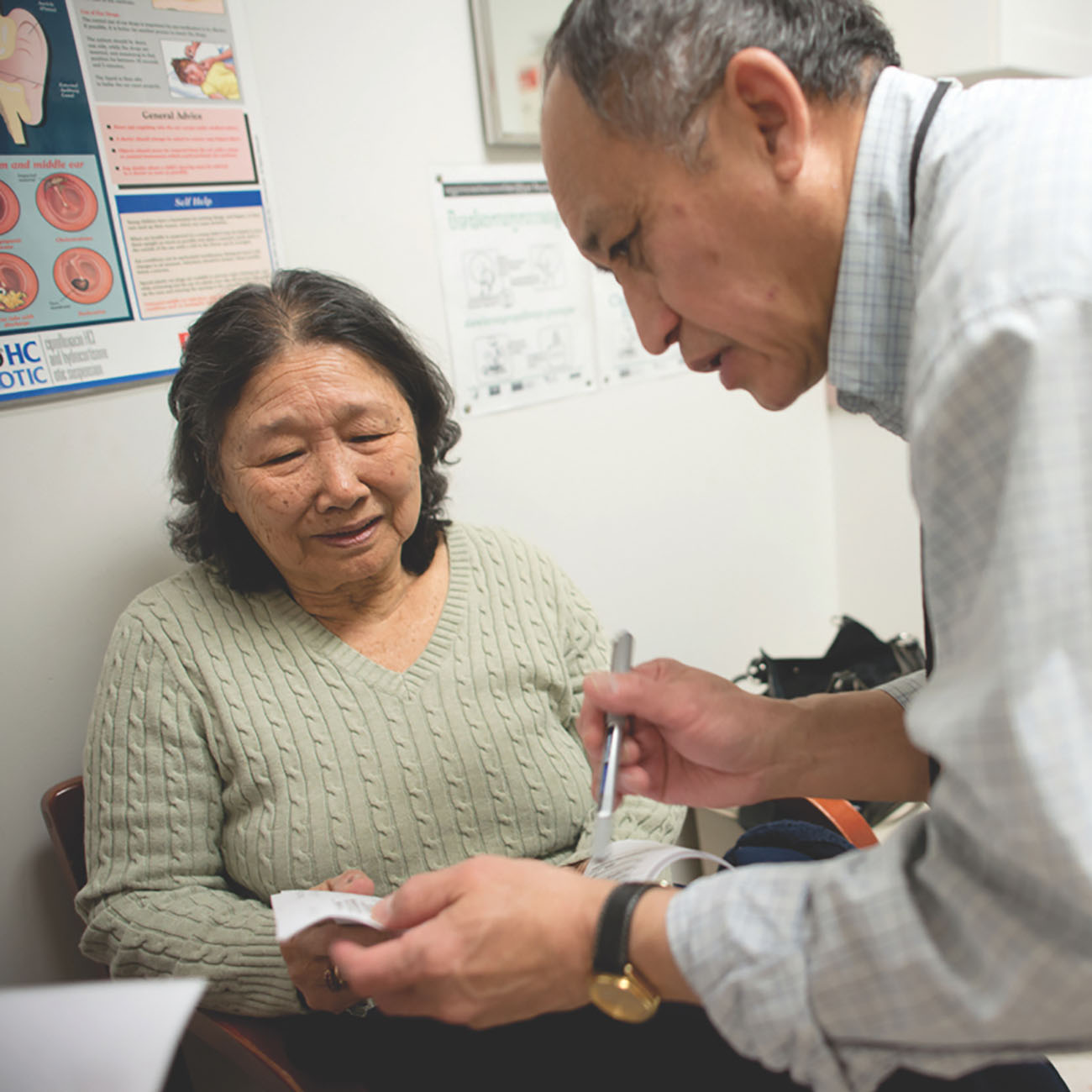
Ensuring Continuity of Care During MassHealth ACO Implementation
During MassHealth’s transition to Accountable Care Organizations (ACOs), our publications equipped providers and ACOs with accessible education and analysis needed to implement the new care delivery models. Through grantmaking, we supported community providers like Lowell Community Health Center to ensure continuity of care for 6,000 of their patients who needed to select a health plan and a primary care provider.
Recognizing Service to Vulnerable Populations Through the Nick Littlefield Award for Excellence in Community Health
The Children’s Advocacy Center (CAC) of Bristol County, a program of JRI, was the 2018 recipient of the Nick Littlefield Award for Excellence in Community Health. The $100,000 two-year award supports critical work with children delivered with the compassion and leadership that Nick Littlefield demonstrated throughout his distinguished career. Founded in 2007 and based in Fall River, the CAC of Bristol County has served more than 5,000 children and their families to heal from the trauma of abuse and violence.
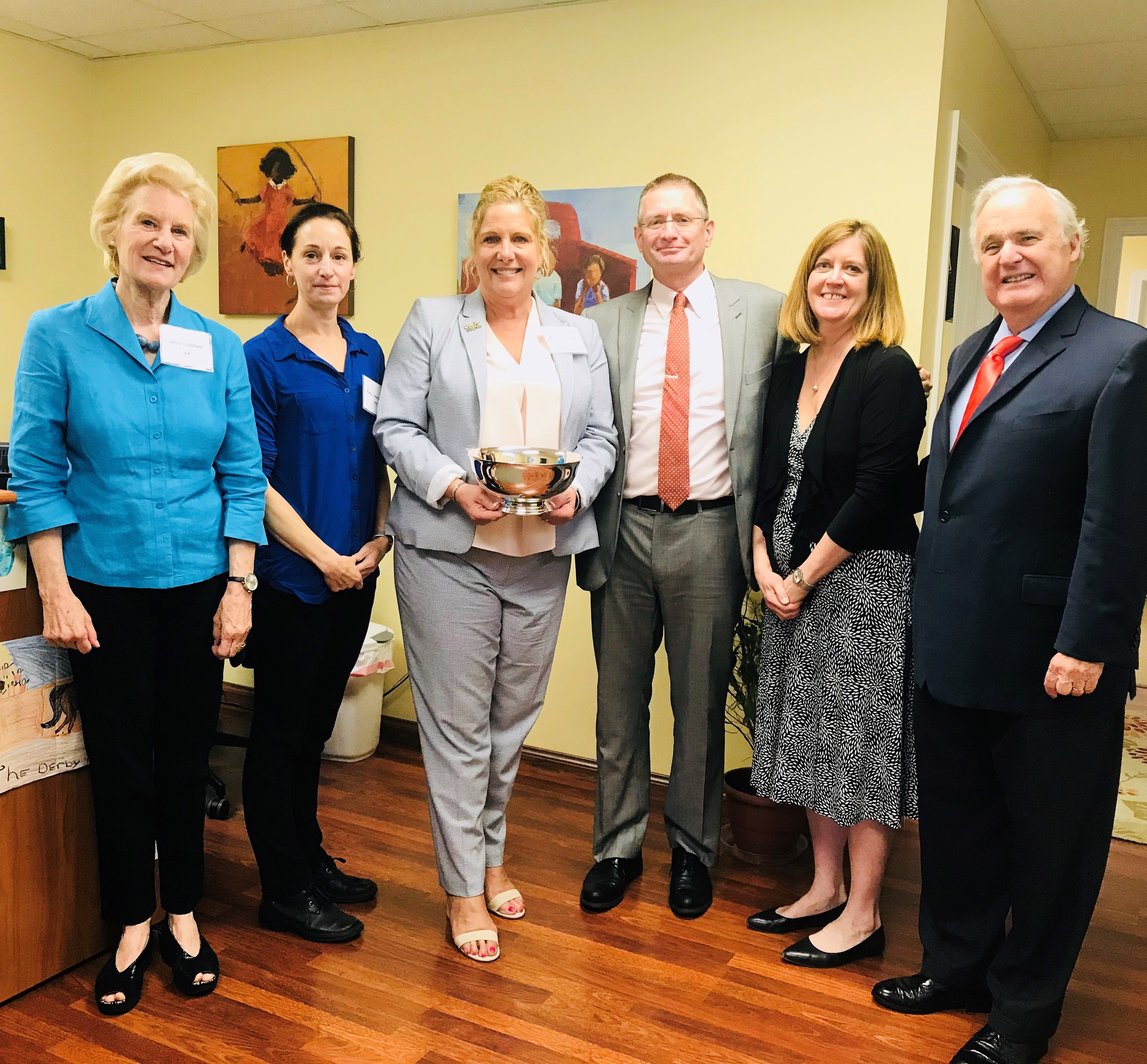
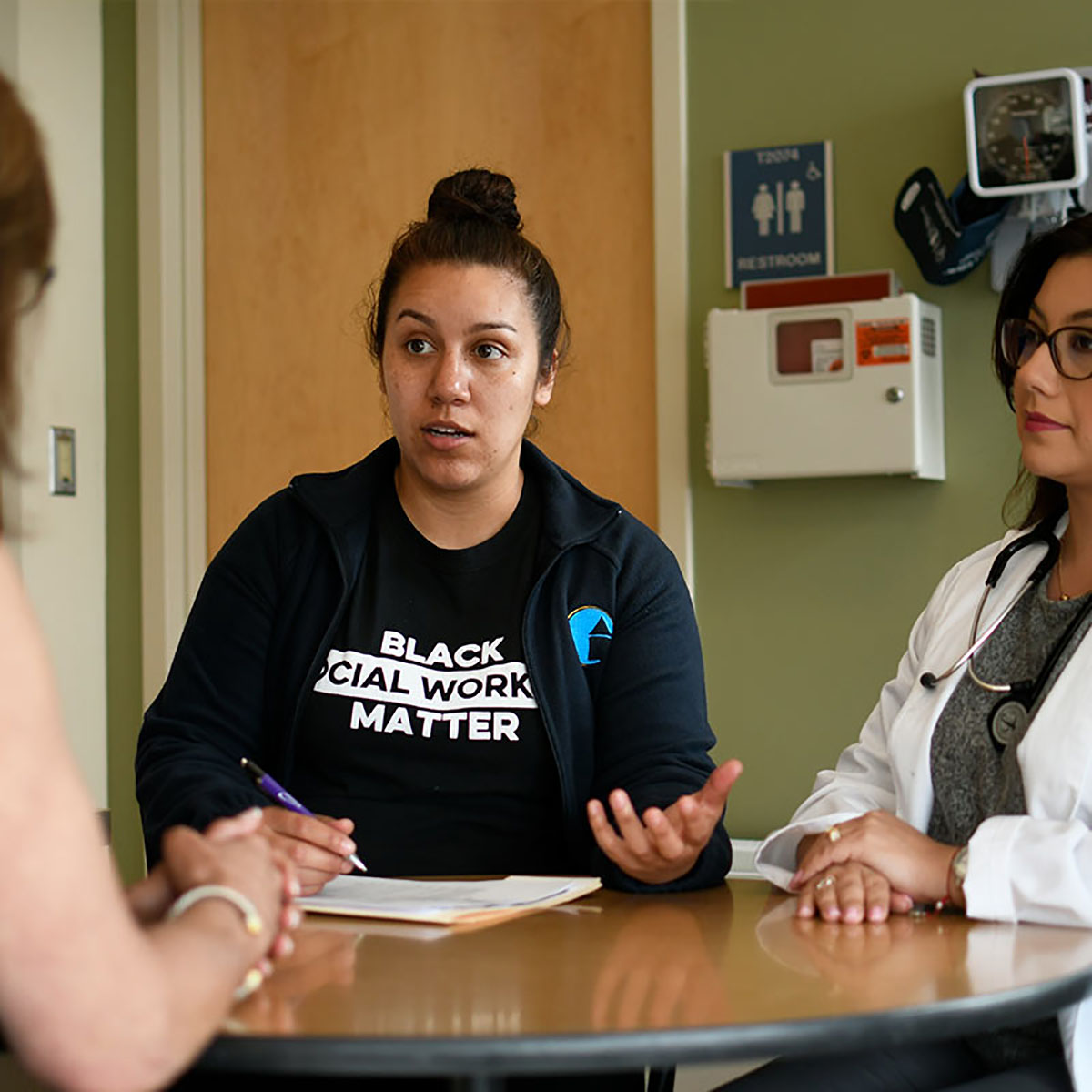
Expanding Access to Behavioral Health Care Through New Models
The Fostering Effective Integration grants funded 8 primary care practices (including East Boston Neighborhood Health Center, left) to assess how integration of behavioral health and primary care services impact access to integrated care, patient engagement and satisfaction, and quality of care.
“The Pediatric Physicians’ Organization at Children’s realized that caring for children and adolescents with substance use and addiction problems in Massachusetts was a significant unmet need. The Foundation funded our proof of concept for three years, which was instrumental in helping us win a five-year, $4.7M grant from SAMHSA that will create new access to care for 200,000 children and teens across the state.”
– Dr. Jonas Bromberg, Director of Behavioral Health Integration, Pediatric Physicians’ Organization at Children’s
IDEAS
Our work promotes new ideas for improving access to health care through grantmaking, research and policy analysis, and opportunities for learning among providers, policymakers, and advocates.
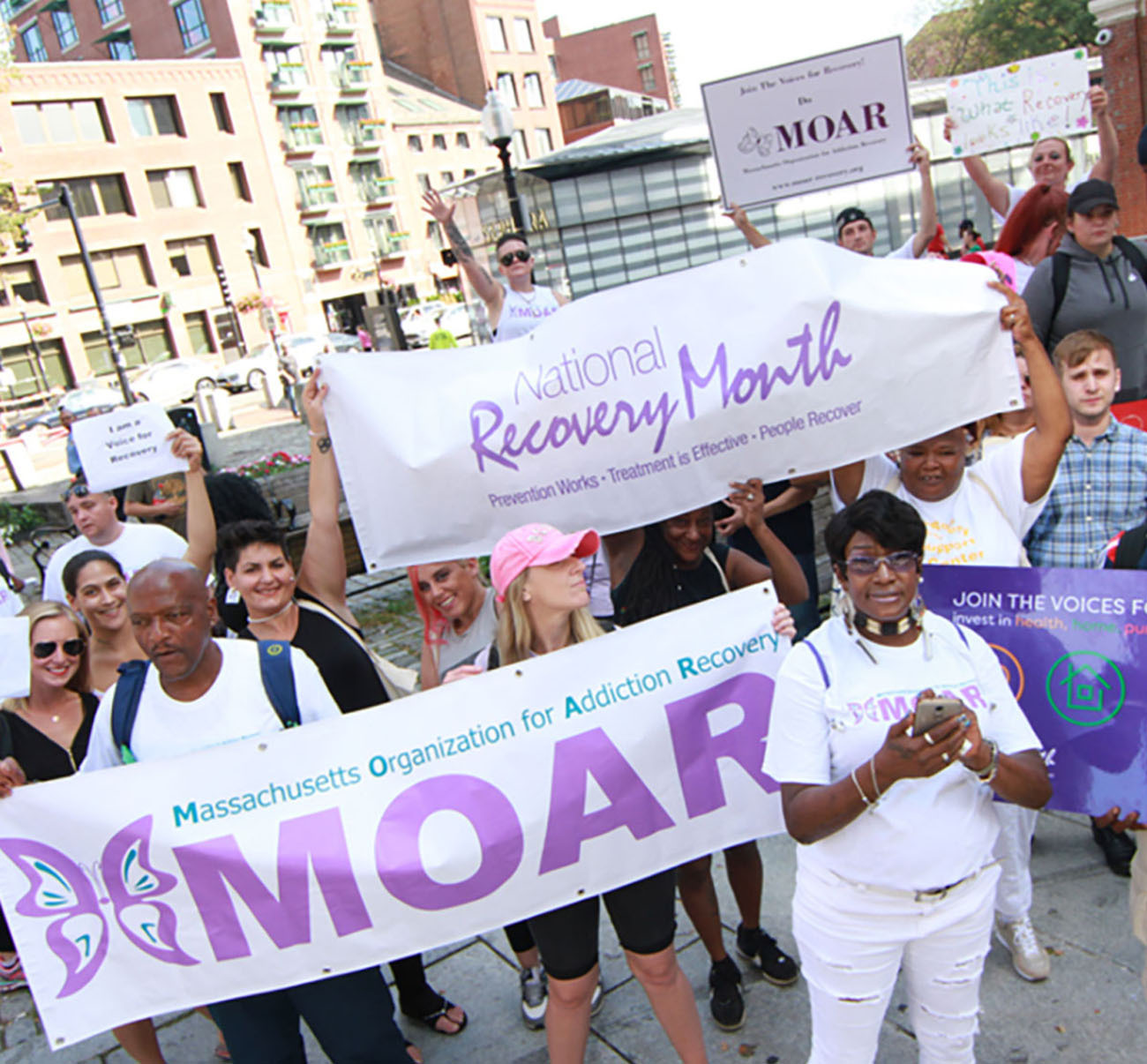
Strengthening the Voice for Access
By funding general operating expenses of health care advocacy organizations, the Foundation helps preserve the advances made in Massachusetts health care coverage and care, and the role of consumer leadership in this effort. One of the Foundation’s newest advocacy partners lifts the voice and interests of people in recovery. The Massachusetts Organization for Addiction Recovery (MOAR) organizes recovering individuals, and their families and friends into a collective voice dedicated to promoting policies focused on addiction as a public health issue.
Contributing Data to Measure Progress and Gaps
Since the Massachusetts landmark health reform law passed in 2006, the Foundation has conducted a periodic survey to track coverage, access and affordability trends in the health care system. The findings were released at an event in December and included new data on access to mental health and substance disorder services. Presenters and panelists discussed findings that confirmed gaps in access to health care generally and to mental health and substance use disorder services, even among the insured.
reported difficulty obtaining MH/SUDs care
reported difficulty finding a MH/SUDs provider who would see them
reported going without needed MH/SUDs care
*of adults who sought mental health (MH) and/or substance use disorders (SUDs) care over the past 12 months
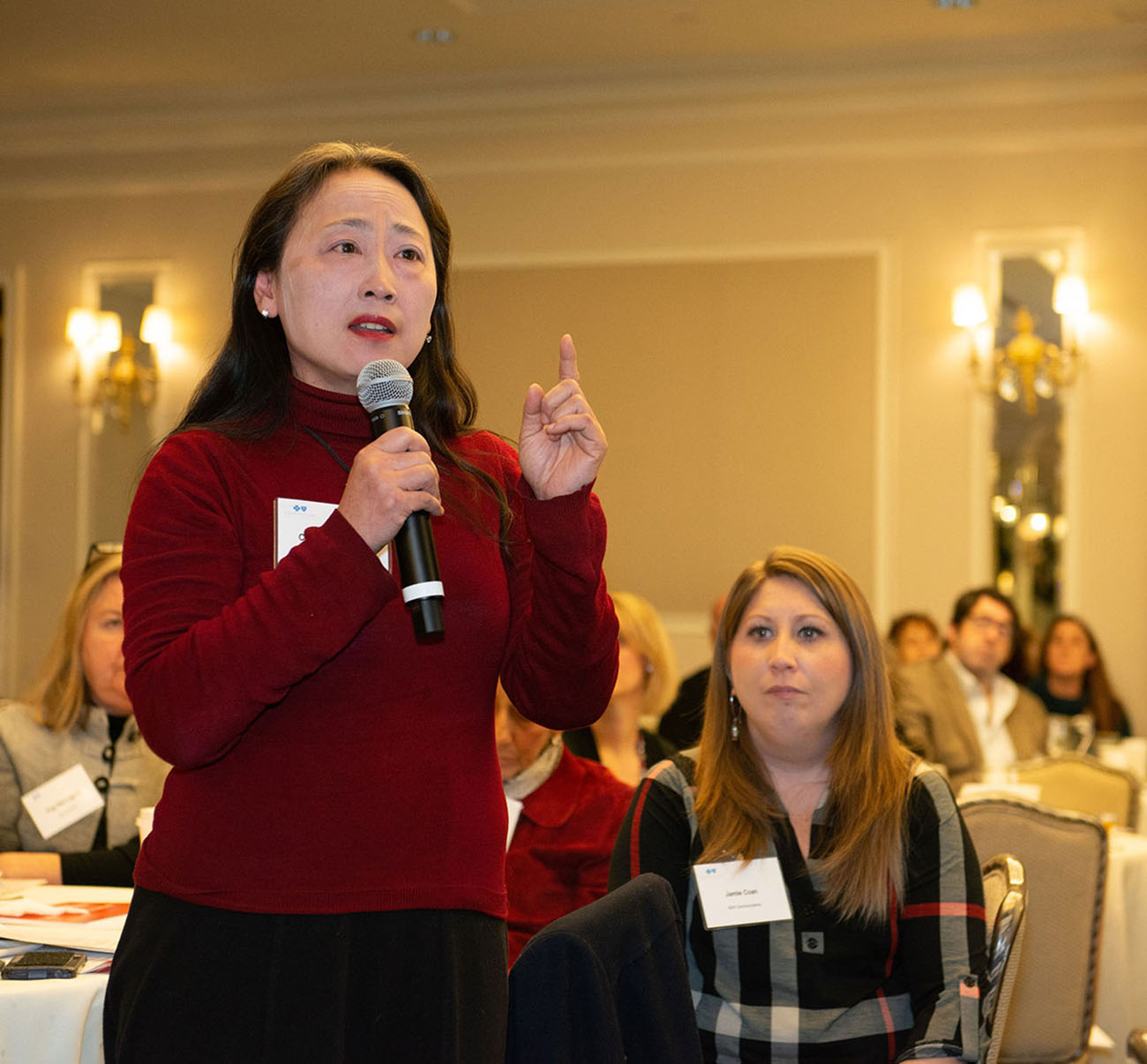
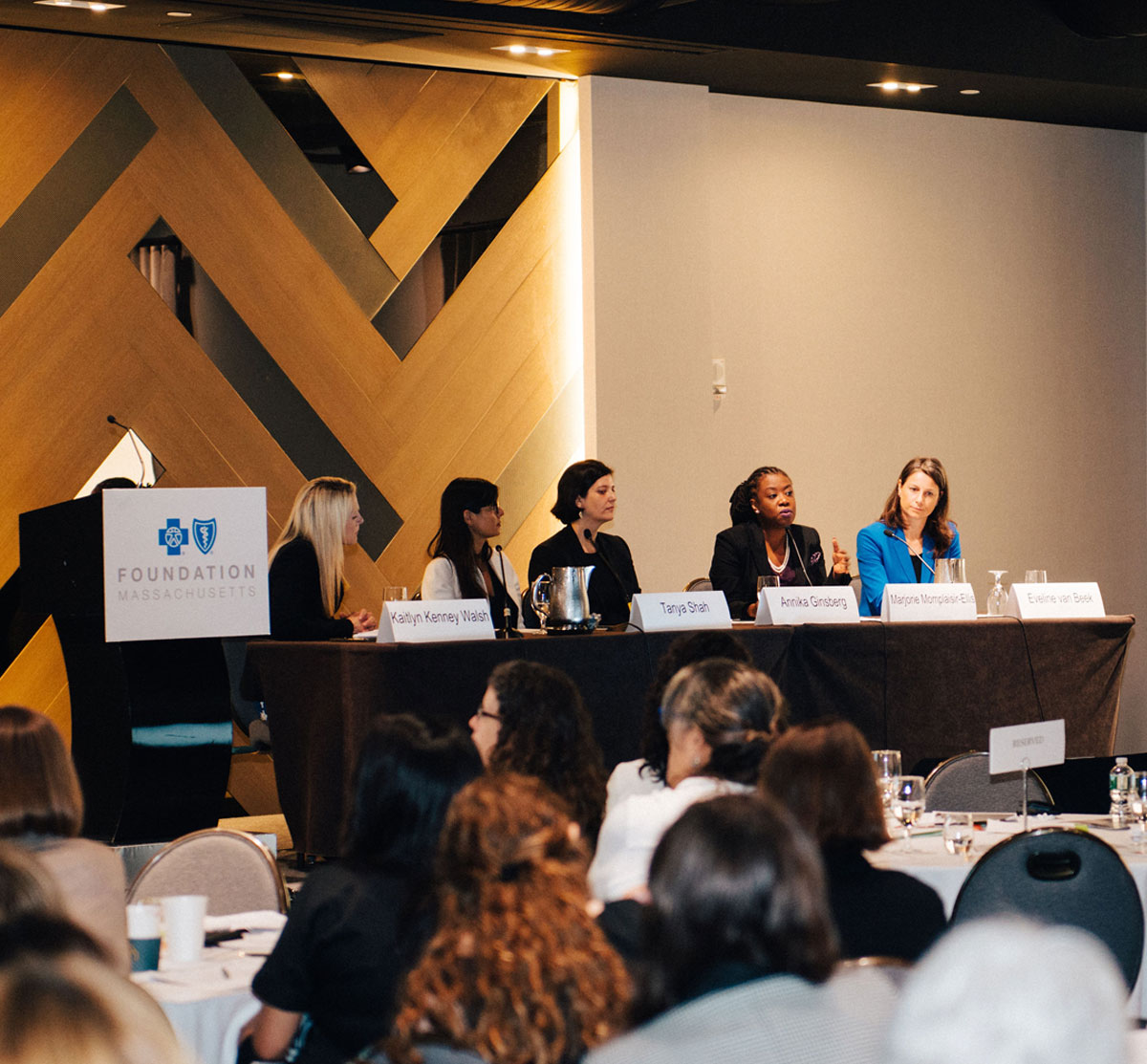
Promoting Frameworks for Social Service Investment and Partnership
The impact of social factors on health status and expenditures coupled with a shift toward value-based payment models has accelerated the need for health care and community-based organizations in Massachusetts to collaborate. At a Foundation event with more than 200 attendees, presenters from KPMG and The Commonwealth Fund outlined recommendations from their report on investing in social services. Panelists discussed the challenges and successes experienced by national and local partnerships.
“What I loved about this event was that it started with a framework and then shifted to examples. Often, I feel events like these just focus on case studies, which definitely gets you thinking but doesn’t translate as easily into action.”
— Event participant
2018 Publications
Partnerships for Health:
Lessons for Bridging Community-Based Organizations and Health Care Organizations
Given the impact that social factors have on health status and expenditures, and the shift toward value-based payment models that reward providers based on outcomes, health care organizations (HCO) and community-based organizations (CBO) across the country are increasingly working together to address patients’ social needs.
The Proposed Public Charge Rule: An Overview and Implications in Massachusetts
This brief describes the potential impact in Massachusetts of a proposed rule, released by the Department of Homeland Security in October 2018, to change the process by which it determines whether an immigrant is inadmissible to the United States or unable to adjust status because the person is likely to become a “public charge.”
How are Massachusetts Community-Based Organizations Responding to the Health Care Sector’s Entry into Social Determinants of Health?
In light of the new interface between health care and social service delivery fostered by the MassHealth program redesign, it is important to understand how community-based organizations (CBOs) perceive the entry of health care organizations into their domains of social service delivery.
2018 Massachusetts Health Reform Survey
This collection of materials is the latest in a series by the Urban Institute summarizing the findings from the 2018 Massachusetts Health Reform Survey (MHRS). The Foundation began conducting the MHRS in fall 2006 to support the evaluation of Massachusetts’ 2006 health care reform bill. The survey has been fielded periodically since 2006 to monitor key measures pertaining to health insurance coverage and health care access and affordability among non-elderly adults (ages 19-64) in Massachusetts.
NUMBERS
Our investments in access to coverage and care, behavioral health, and social equity and health reach communities throughout Massachusetts.
Grantmaking
Total amount awarded in 2018
-
Expanding Access to Behavioral Health Urgent Care
-
Strengthening Voices
-
Connecting Consumers to Care
-
Special Initiative Grants
-
Going Beyond Health Care
-
Catalyst Fund
-
Network of Care
-
Nick Littlefield Community Award
-
Policy Grants
Expanding Access to Behavioral Health Urgent Care
Strengthening Voices
Connecting Consumers to Care
Special Initiative Grants
Going Beyond Health Care
Catalyst Fund
Network of Care
Nick Littlefield Community Award
Policy Grants
Organizations Funded
BOARD
The Foundation’s work is guided by an expert group of leaders from health and human services, business, government, and higher education.
2018 Board of Directors
Phil Johnston
Chair
President, Philip W. Johnston Associates
JD Chesloff
Executive Director, Massachusetts Business Roundtable
Andrew Dreyfus
President and Chief Executive Officer, Blue Cross Blue Shield of Massachusetts
Sandro Galea, MD
Professor and Dean, Boston University School of Public Health
Michael Hunter
Business Development, Trinity Financial
Thea James, MD
Vice President of Mission, Associate Chief Medical Officer, and Director of the Violence Intervention Advocate Program (VIAP) at Boston Medical Center; Assistant Professor of Medicine at Boston University School of Medicine
Manny Lopes
President and Chief Executive Officer, East Boston Neighborhood Health Center
Mary Kay Leonard
Independent Consultant
Antonia McGuire, RN
President and CEO, Edward M Kennedy Community Health Center
Bruce Nash, MD
Chief Physician Executive and Senior Vice President, Health and Medical Management, Blue Cross Blue Shield of Massachusetts
Rob Restuccia
Executive Director, Community Catalyst
Henry M. Thomas III, JD
President and Chief Executive Officer, the Urban League of Springfield, Inc.
Patricia Washington
Board of Directors, Action for Boston Community Development (ABCD), the YW Boston, and MassBay Community College Foundation
Audrey Shelto (ex-officio)
President, Blue Cross Blue Shield of Massachusetts Foundation
FUTURE
From identifying a path toward a model behavioral health system to putting a face to the MassHealth numbers, the Foundation has already stimulated important conversations in 2019.
